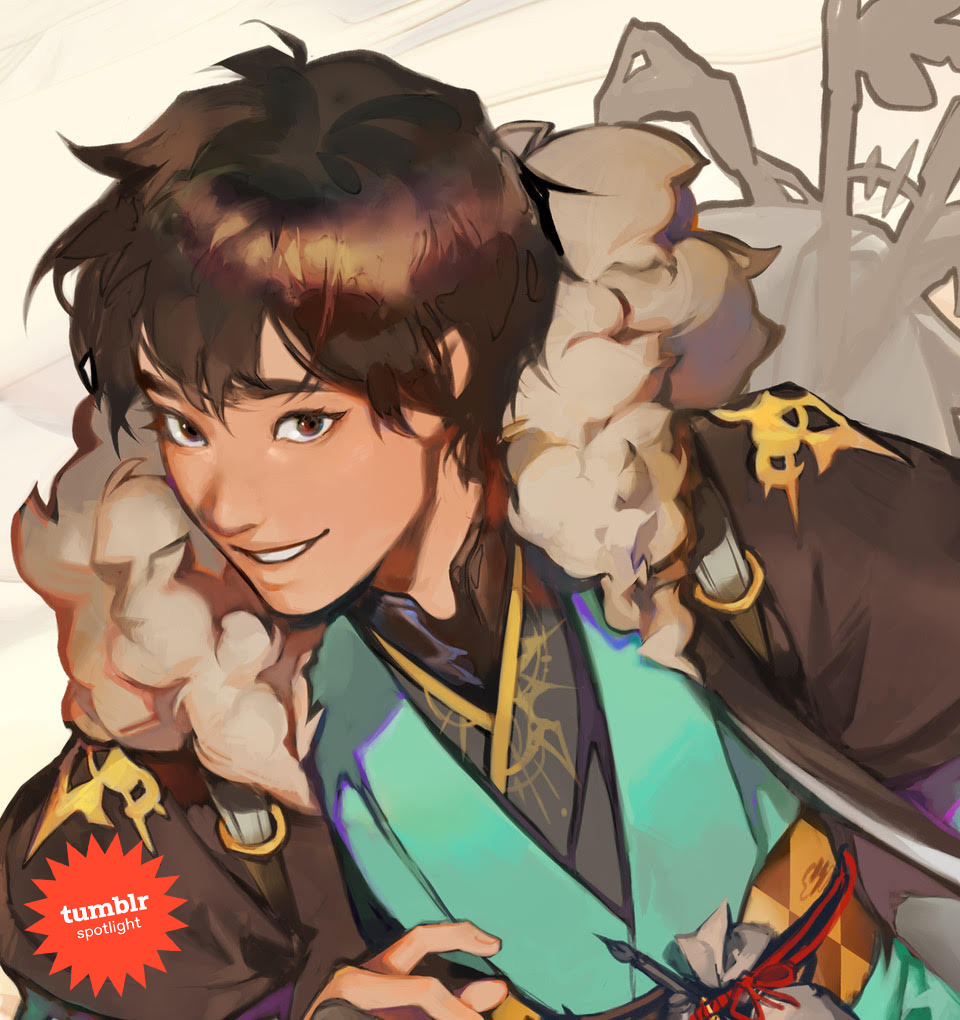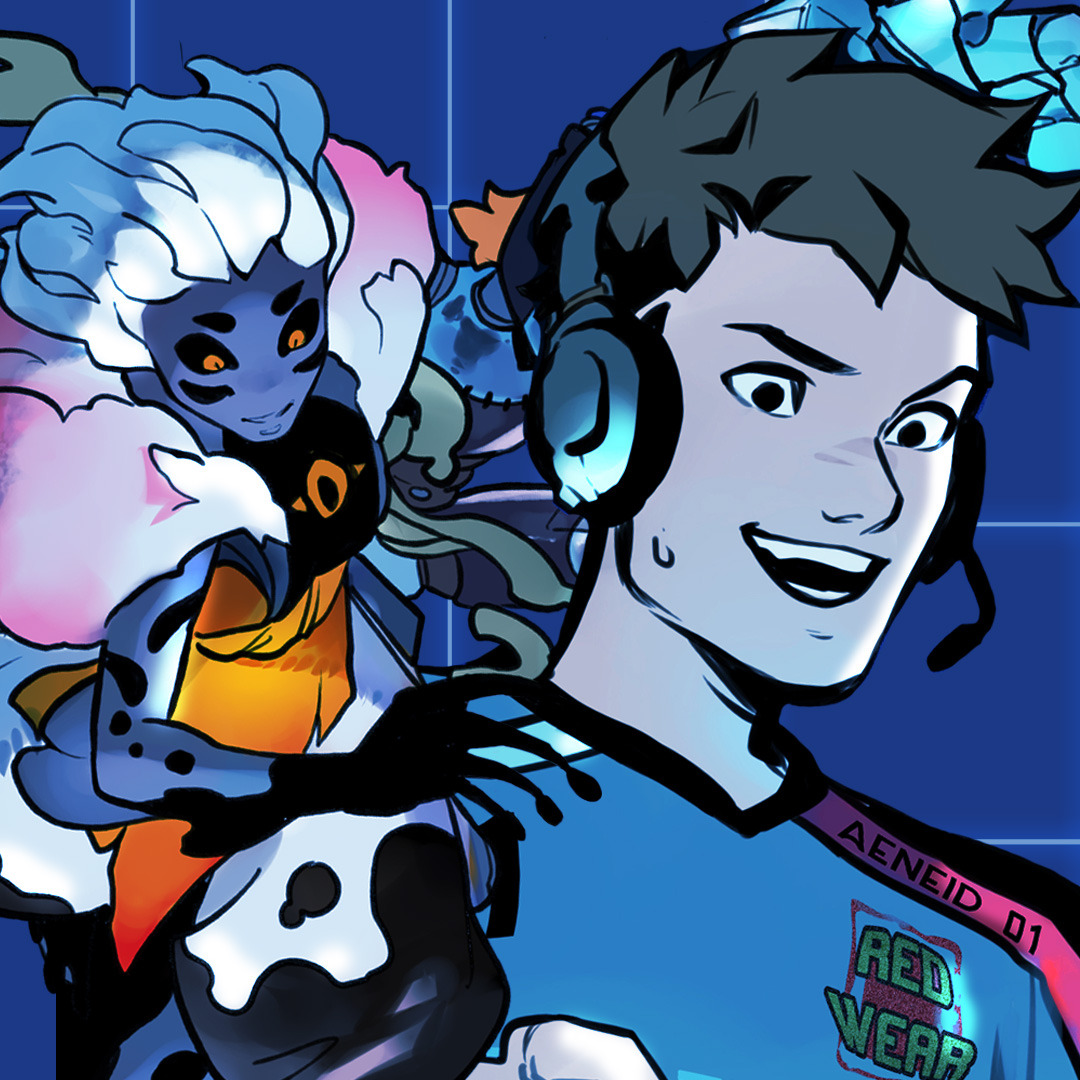Meet New York Times Bestselling author Sean Williams
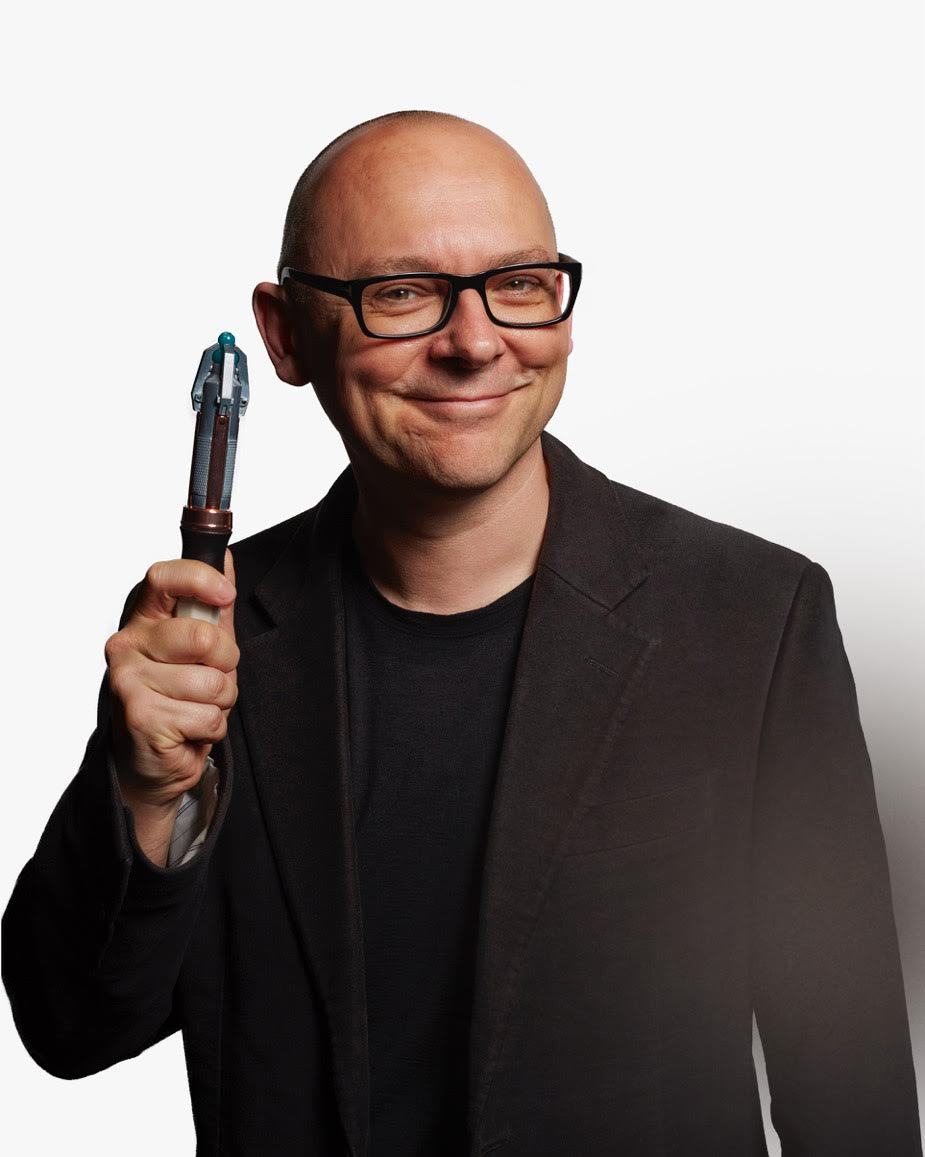
Sean Williams is an award-winning, #1 New York Times-bestselling author of over forty novels and one hundred stories, including some set in the Star Wars and Doctor Who universes, and some written with Garth Nix.
Tapas will feature Williams’ Twinmaker short stories on the upcoming app for readers to dive into. With the launch quickly approaching, we want you to get to know the author before becoming immersed in the amazing universe he created.
When did you know you wanted to be a storyteller?
A love of books was something I inherited from my parents, who were both teachers. They never once stopped me from reading anything I wanted, and our shelves at home were always overflowing. Agatha Christie was my first literary crush, thanks to my mother’s collection. She also introduced me to my first fantasy novels. It’s usually her I blame for being a writer now.
I knew I wanted to be a storyteller from a very early age, and I have old creative writing exercises to prove it. My earliest written stories were from around the age of eight. They were always about something fantastical, like encountering giant ants or ghosts or whatever got me excited that day. They were illustrated too, very badly. I use these old stories to demonstrate why I’m a writer, not an illustrator.
When I was ten years old I wrote a spectacularly long story, thirty pages or so, that my teacher read out to the class. I was terrified and secretly pleased. This was the first time any of my writing found an audience. It’s that moment, I think, that I decided I want to write for a living.
In your short stories, you explored a wide range of topics and genres all revolving around D-mat. For instance, “The Missing Metatarsals” is a mystery, “The Last Christmas” is, well, a Christmas story, and “A Giant Leap for Man” is a tragedy to name a few. Did you have a particular topic or genre that was your favorite? Alternatively, are there some genres or topics that you’re still looking forward to exploring?
The many short stories I’ve written in the Twinmaker universe stem from my interest in urban myths. Twinmaker features one, and if you step back and squint at the novel real hard, you can see that it’s one too. While I was writing the book, I wondered what other kinds of urban myths might be set in this universe–and once I asked that question the ideas started flowing.
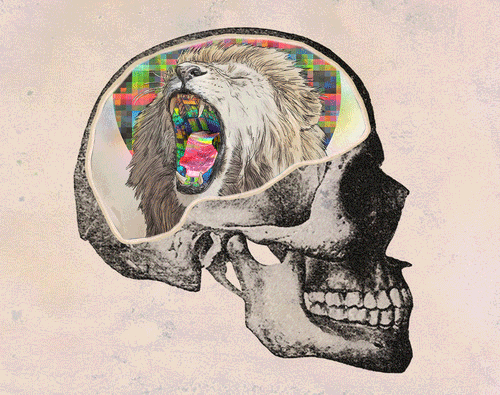
I’ve written stories about ghosts, serial killers, exorcisms, weight-loss, malfunctions, sabotage, pranks, scams, and more. The thing about urban myths is that they’re usually dark and have a moral sting in the tail. They can be funny, too. I’ve found a huge amount of enjoyment using the form to explore the world far beyond the actual book, and the ideas are still flowing.
I think the only genre I haven’t tapped into yet is the Western. Maybe one day, if I can think of a good spin on it …
This is a little late, but how did you like the new Star Wars? We are curious since you write Star Wars fiction.
I thought the movie was a huge amount of fun, which is exactly what it needed to be, for old-time fans like me, and for new ones too. It was particularly great to see some fresh, diverse faces entering the story. Can’t wait to see what happens next.

Who are the authors you looked up to?
Agatha Christie was the first. I loved all her books and she was a huge influence when I was young. It was the first time I realized writers had personalities too. That books weren’t just written by anonymous people. They were written by the same people sometimes. That was a huge realization for someone that went on to be a writer.
I’ve had so many favourite authors down the years. A list would go for pages! It would include Susan Cooper, Alan Garner, and Ursula Le Guin (who introduced me to fantasy); Isaac Asimov, Arthur C. Clark, and Larry Niven (who introduced me to science fiction); and Patrick O’Brian for being perhaps the greatest writer who ever lived. My current favourites are Sarah Waters, Lee Child, and Tamora Pierce.
How did you develop your style?
Well, that’s a really good question. I’ve always been influenced by what I read. I’ve gone through phases where I read a lot of Stephen King, say, so my earlier short story had moments where I’m trying to mimic his voice, his rhythm. Sometimes it works. Not as well as Stephen King, but you can see the drive coming through.
I think the more I’ve read the more influences have played a real big part in what emerges. What somehow becomes my own voice. It’s a bit of a mystery how that happens. As I become more experienced as a writer, I can consciously manipulate the voice and start to change things. With a lot of the Twinmaker short stories I try to write them in different ways and different tones. That is a part of the art or craft of being a writer, which you develop with more and more practice. But it all comes back to the things that I read. Whenever I’m writing anything, I try to read something that will make me write better.
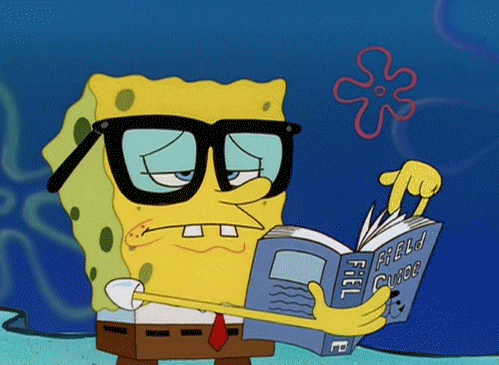
Tell us about “Escape From Thorngate Hall?” How did you come up with this concept?
So, “The Adelaide Advertiser,” which is my local paper, last year wrote a collaborative story to promote literacy amongst schools in South Australia. They approached a wonderful writer Ruth Starke to write the first chapter of a novel, which then went to a school for the kids there to write the second chapter. Then Ruth tidied it up and it would be published. Then that chapter would go to the next school in line and they would write the third chapter. So everyday, through the course of February last year, a chapter was published from this particular book, until it was finished. They learned a lot from that experience.

(Image: Stephen Stanley; via The Advertiser)
The Advertiser came to me this year to see if I would like to be involved in the second iteration of this project. I said, ‘yes, of course.’ I love collaborating. I like writing with other people. Writing a book with half the school kids in my home state, my hometown, was just irresistible. I came up with the first chapter. Thorngate is a very small suburb in Adelaide; it’s just a wonderful sounding kind of word. I was thinking about the kind of stories I loved when I was a kid, and the idea of being trapped in a mysterious maze seemed like a great place for a story to start. The school kids ran with it from there and took it to some very strange places. We’ve now got a robot army and mysterious monsters invading the maze, which can also travel through time! Who knows where it will go? This wraps up February 29th where I get to deliver the last chapter and tie up all threads together. That’s the opening weekend of Adelaide Writer’s Week, an Australian major literary festival. I’ll be reading that chapter live to a bunch of kids as a part of family day. It’s all very exciting.
What’s so cool is the episodic format is similar to Tapas.
Yeah, that’s right! The episodic mode of storytelling is just fantastic. I’m hearing all these stories of kids getting the newspaper every morning and reading what’s happening next. While that’s good for newspaper circulation, it’s also a fantastic way for kids to experience storytelling and to know that they are part of it as well. It’s a great opportunity. It’s kind of unique these days and a wonderful thing to be part of.
What is your favorite comic from Tapastic?

I really like “Super Science Friends: 2099.” I think it’s hilarious! Their art is beautiful I love it! And I’m naturally drawn to science fiction serials involving famous scientists from throughout history. Such a cool idea. I have many more to explore. There is such a variety of comics there. It’s awesome.
The food on your Instagram looks delicious! Do you like to cook?
I really like to cook. It’s a great way to get away from the desk. In particular I love brussel sprouts. The thing about brussel sprouts is that people either love them or hate them. There never seems to be anything in between. When you post a photo of anything involving brussel sprouts on the internet you get a very powerful response. People either go, ‘Yum! That looks fantastic!’ or ‘Ew! That’s so disgusting! That’s horrible! I don’t know how people put that in their mouth.’ It’s a great way to get traffic, but I don’t do it just for that. It’s a great way to get a conversation going with people. Everyone loves food and a lot of people love cooking. People send me recipes with brussel sprouts or pictures of me looking like a brussel sprout from the science fiction community in Australia.
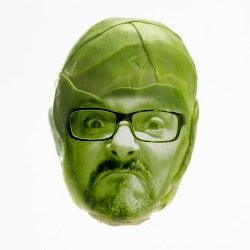
(Photo Credit: Martin Living)
It’s really weird, but it is something I am very passionate about. They are a great source of Vitamin K and other nutrients. I could go on and on - such a brussel sprout nerd!
I do love food. I am a vegetarian. A vegetarian who doesn’t like eating cheese, which creates a lot of limitations on food when I’m going out. I get to explore that kind of cuisine a lot when I’m at home. I also love really really spicy food. The hotter the better!

Do have any other cool hobbies or talents? (besides writing awesome stories of course)
Apart from cooking? Tai Chi, which I took up to unlock my neck and back after years of sitting at a desk. I’m currently learning Tai Chi Sword, which has the added bonus of making me feel like Jedi Knight.
List three random facts about yourself
- I love rain.
- The first concert I ever saw was ABBA in 1975.
- I can’t burp.
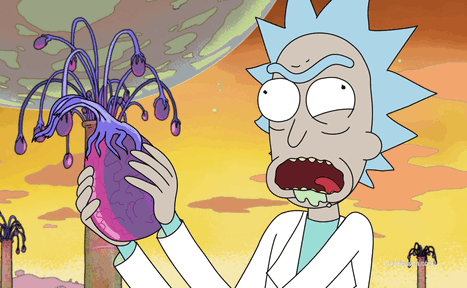
Why are you excited to be on Tapas?
I’m excited to be on Tapas because I love books. I’ve been waiting for electronic media for books all my life. I love the idea of walking around with a library in my pocket, and graphic novels on the beautiful screens look fantastic. This possibility couldn’t have existed if it wasn’t for the technology today. It’s the perfect use of this technology. It’s an amazing intersection of storytelling and technology. We can now have an entire world of storytelling with us at all times and I’ve been waiting for that my entire life. To be part of that is absolutely extraordinary and incredible.
Stories are meant to be with us constantly. They are designed to unfold throughout our lives. The idea of having pieces come into your world every morning, or every afternoon, whenever you want to read them - this is the ideal way to experience stories.

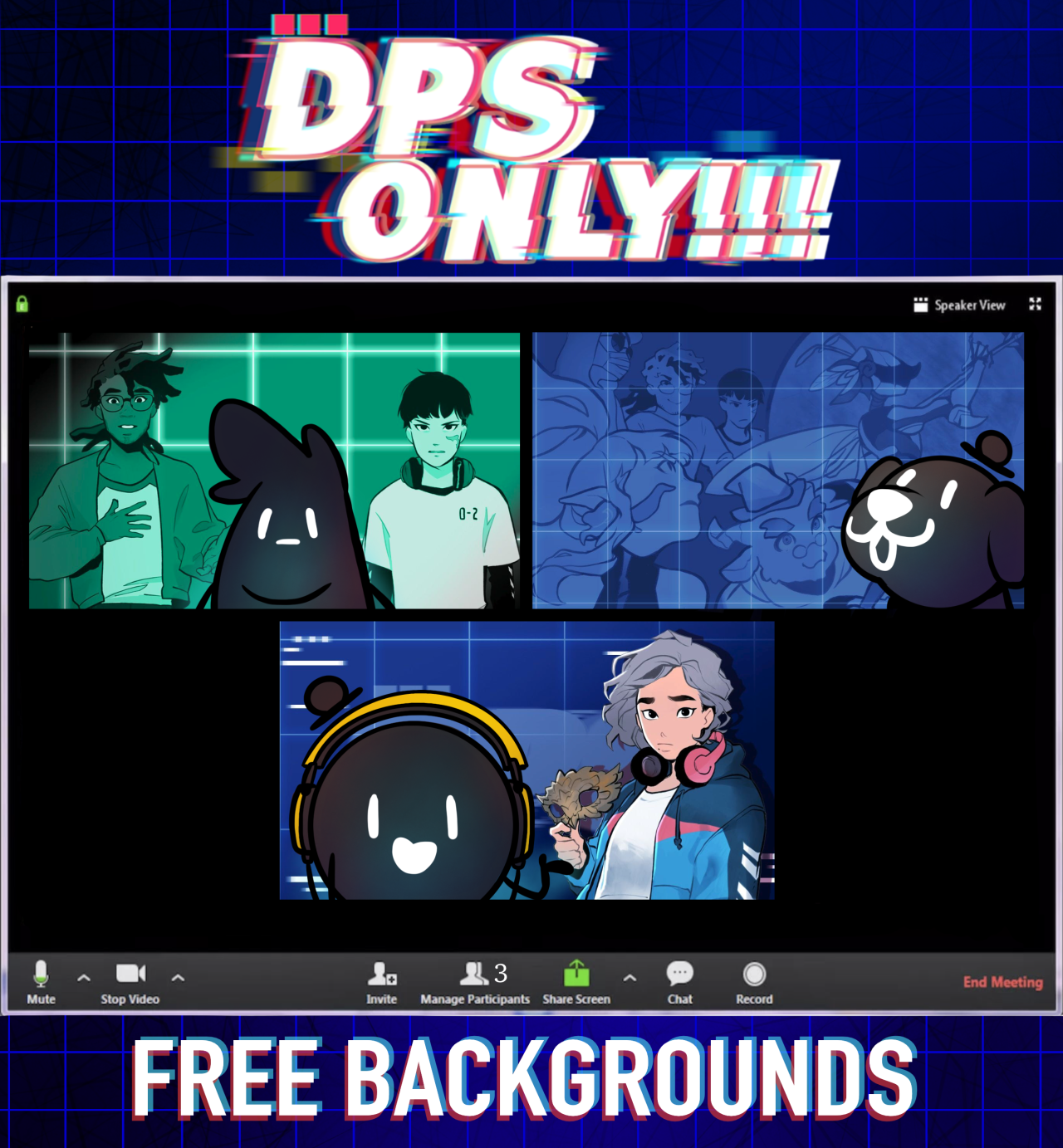
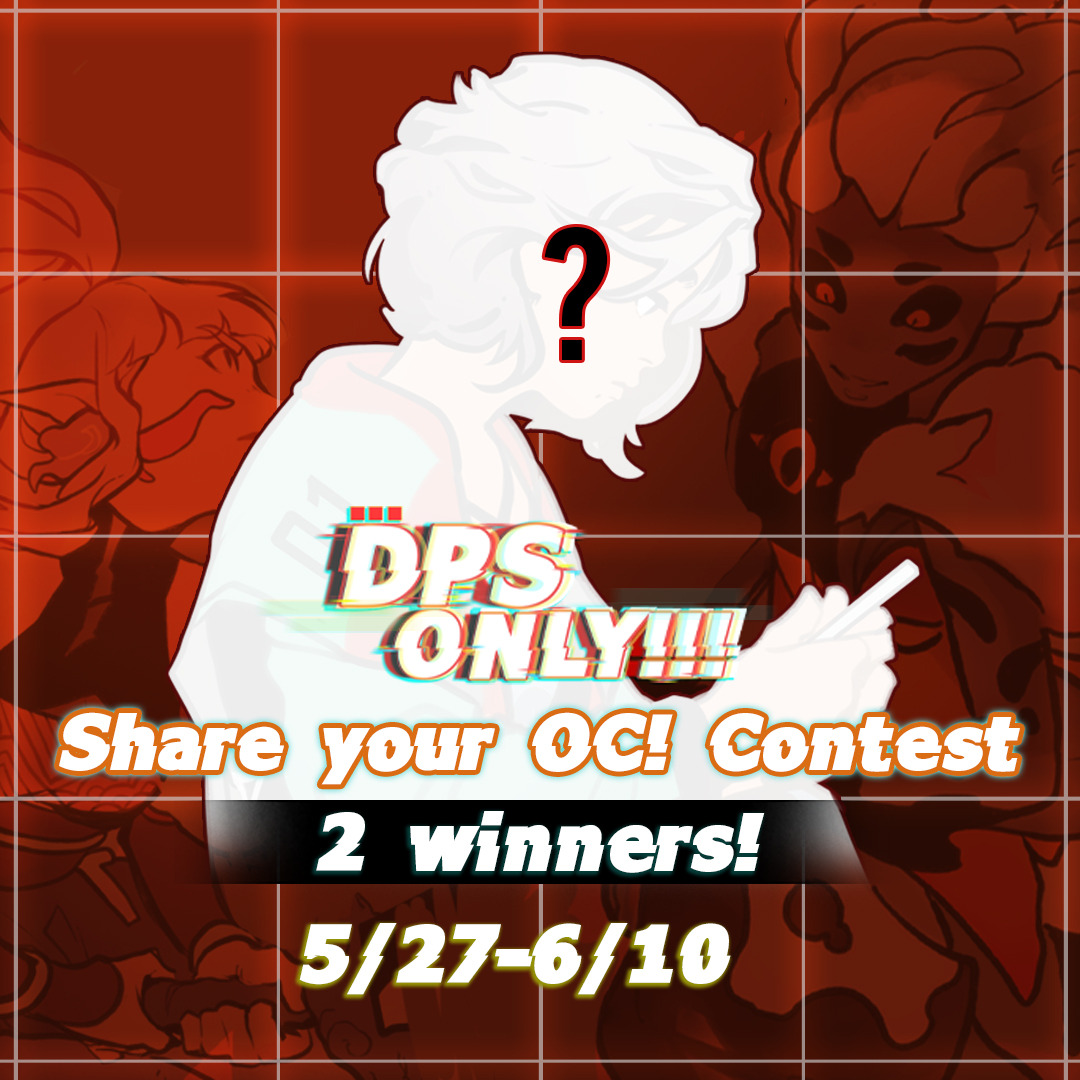


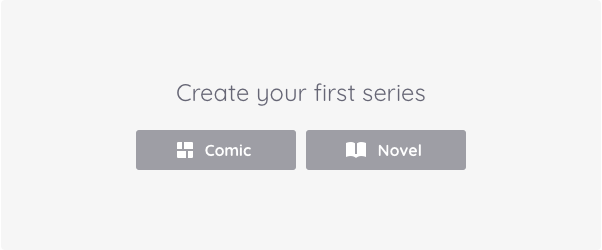





 gaming
gaming